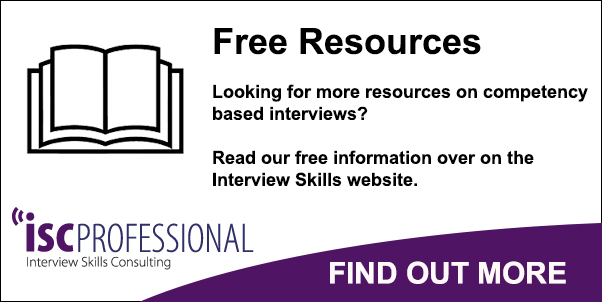11 Tips To Ace Your Competency-Based Interview
Competency-based interviews may seem a little daunting. The good news is that with planning and preparation, the competency-based interview can provide the perfect opportunity to showcase your skills, knowledge and experience.
Here we highlight 11 tips which will see you come out on top at your competency-based interview.

1. Analyse the job specification
Phase one of researching which competencies the employer wants to discover in candidates is scrutinizing the job specification. Take time to read and re-read it, pulling out specific skills, knowledge and experience requirements which it contains.
2. Investigate the company website
Capture broader insights from the company website. Scour through their webpages for a feel for the style of organisation you are being interviewed by and the attributes which successful existing employees demonstrate.
3. Review industry intelligence
Next, find out what you can about the industry within which the company operates, and the types of people who are leading the way within it. Industry journals and websites can be a useful source of this type of information, as well as career guides for the particular occupation.
4. Identify common competencies
While every job will have its own requirements, there are some competencies which are deemed desirable by the majority of employers. These include teamwork, problem solving, communication skills and conflict management. Make a list of these essential competencies and add in other specifics gathered through your research.
5. List potential questions
Competency-based questions are designed to find out about when a prospective employee has already demonstrated a particular skill or attribute. The questions therefore usually begin with phrases like, ‘Tell us about a time when…’, or ‘Give us an example of when..?’ Take each of the competencies you have identified and make a list of questions under each.
6. Inspect your CV and application form
Review your CV and application form and highlight information which relates to the competencies you have identified. Pull out plenty of information- it’s better to have too much at this stage and then discard what you don’t need later on.
7. Match examples to the competencies required
Take the information gathered at step 6 and match the examples you have found with the question list you made at step 5. This matching process will help you link the most impactive examples with the ideal question area. Thinking this through before you are asked on the day allows you to produce a much more considered answer than by doing it ‘on the hoof.’
8. Use the STAR technique to structure answers
Structure each answer using the well-tested STAR technique- this will ensure you hit all the points the panel will be looking for. By describing the S(ituation), (T)ask, (A)ction and (R) esult, you will tell the story associated with each example in a concise way that provides comprehensive supporting evidence.
9. Practice, practice, practice
Using the list of potential questions, get a friend to put you through your interview paces. Another option is to undertake a mock interview with a professionally trained interview coach.
10. Listen to the questions
During the interview listen to what the panel is asking and tailor your responses to suit. It is important to adapt your pre-prepared answers to address the specifics of what they are asking.
11. Be yourself
Preparation is essential but it is equally important to sound natural on the day. Try to relax as much as possible so that as well as nailing the competencies you also convey your character.
To learn more about competency-based interviews then head over to the Interview Skills website.

